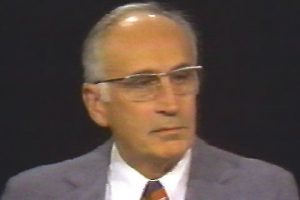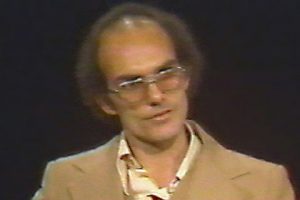Alex Leijonhufvud (Part II)
About this video
Alex Leijonhufvud interviews Friedrich A. Hayek (Part II)
In this short interview, Dr. Hayek describes the evolution of his ideas, emphasizing the evolutionary basis of many of his writings. The roles of positivism in the development of philosophy, as well as his thoughts of psychology as discussed in The Sensory Order are explored. Transitioning into the role of knowledge in society, the abstract rules of society and complex systems as described in inter alia Law Legislation and Liberty are examined. Hayek describes the importance of a constitution and the denationalization of monetary policy. Finally, he describes the three sources of human values.
Credits
More Interviews
Alex Leijonhufvud (Part II)
About this video
Alex Leijonhufvud interviews Friedrich A. Hayek (Part II)
In this short interview, Dr. Hayek describes the evolution of his ideas, emphasizing the evolutionary basis of many of his writings. The roles of positivism in the development of philosophy, as well as his thoughts of psychology as discussed in The Sensory Order are explored. Transitioning into the role of knowledge in society, the abstract rules of society and complex systems as described in inter alia Law Legislation and Liberty are examined. Hayek describes the importance of a constitution and the denationalization of monetary policy. Finally, he describes the three sources of human values.









